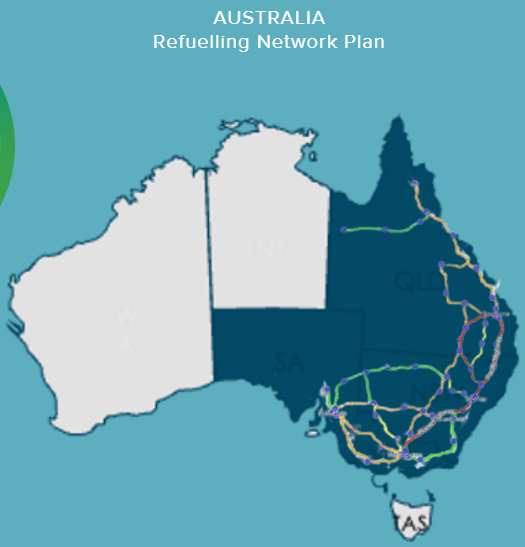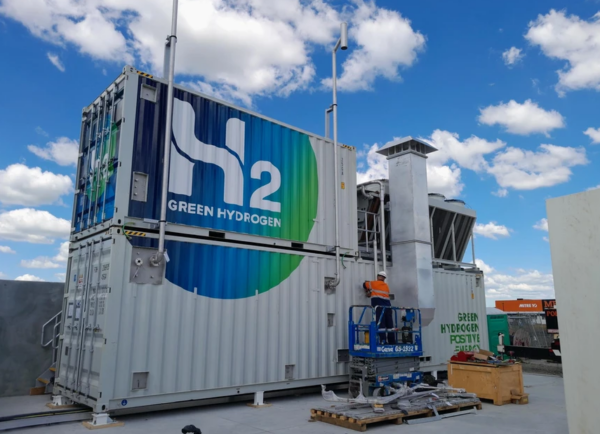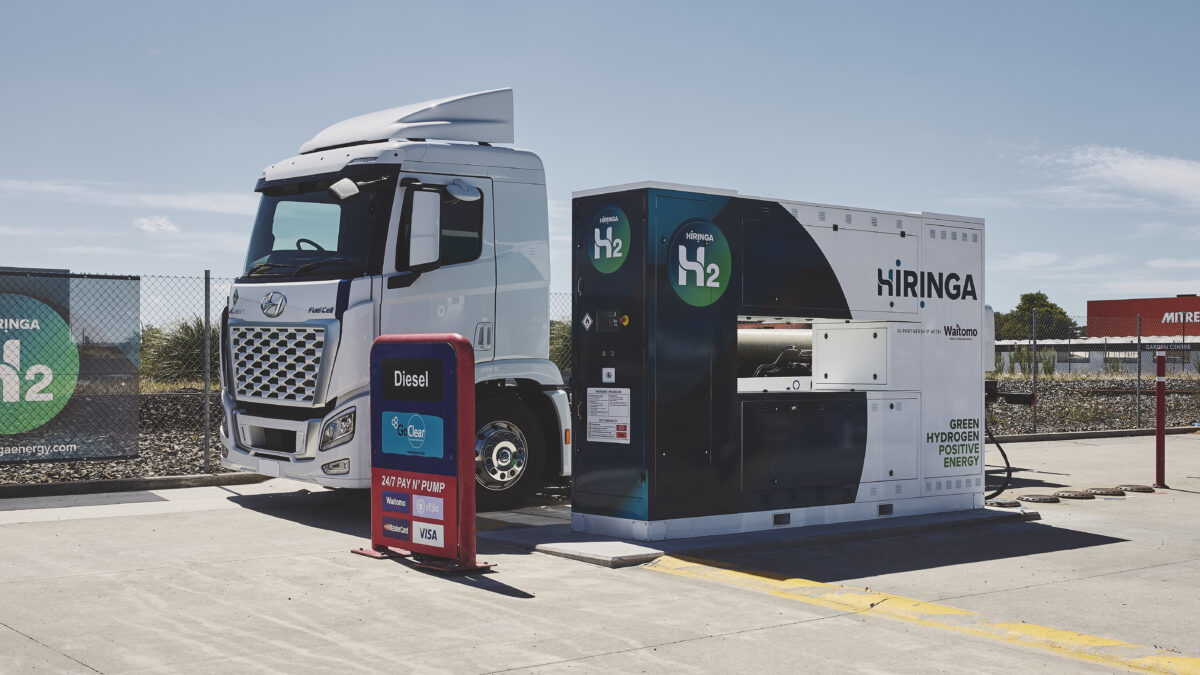Hiringa Energy has launched a green hydrogen fast-refuelling network in New Zealand, with the first three stations of the proposed nationwide network now operating and positioned to service 95% of the heavy freight routes across the country’s North Island,
The company has plans to establish a similar network in Australia but Hiringa Chief Executive Officer and co-founder Andrew Clennett said policy uncertainty is threatening to undermine the project.
“We have been working with our partners planning the Australian network for a number of years, taking our learnings as we go but modifying it for the Australian east coast, however, there remains some policy uncertainty at both the state and federal government level as to how these network plans would be supported,” Clennett said.
A map on Hiringa’s website identifies a string of potential Australian sites that Clennett said shows a full multi-phased roll-out over 10 or more years, based on the company’s network analysis and modelling.
“This roll-out is planned in phases where we are looking to cover Melbourne to Brisbane and through the key inland to port agri-connector routes as a priority,” he said.
“Several of the preliminary sites are identified and access agreements have progressed, however, further development of the broader network at this nascent stage would require clear policy support at the state and federal level.”

Image: Hiringa Energy
Hiringa’s plans for Australia are broader than the Victorian, New South Wales (NSW) and Queensland governments’ proposed East Coast Hydrogen Refuelling Network (ECHRN) that would see the development of a renewable hydrogen refuelling network focusing on the Hume Highway, the Pacific Highway and the Newell Highway.
Hiringa has also identified potential locations for green hydrogen refuelling stations in northwest NSW.
“We have seen an important role for hydrogen to service what we call the ‘agri-connector’ routes, for example, inland NSW to key export ports,” Clennett said.
“It is crucial that Australia’s agricultural heartland is able to get their exports to market with low emission transport, as their international market access and pricing is dependent on this.”
Hiringa is already active in the agribusiness industry, teaming with Sundown Pastoral Company on the 12 MW renewable ammonia and green hydrogen production facility on a cotton farm near Moree.
It is expected the Good Earth Green Hydrogen and Ammonia (GEGHA) project, to be powered by the 27 MW Wathagar Solar Farm and an 11 MWh battery energy storage system, will produce enough green hydrogen to displace more than 1.4 million litres of diesel.

Image: Hiringa Energy
“GEGHA is complemented with a proposed minimum network to leverage the project’s hydrogen production and help open up low-emission trucking to export ports such as Brisbane for the region’s agricultural exports,” Clennett said, adding that the company will use the lessons learned in New Zealand as a blueprint for its Australia operations.
“The model we have implemented is quite different from the incumbent diesel refuelling model, which is not naturally aligned, nor necessarily very appropriate for this technology,” he said.
Clennett said hydrogen for high utilisation commercial and heavy transport is a critical technology for Australia where the distances and payloads are significant and there is the need to decarbonise our supply chains.
“The shippers, retailers and exporters need to be working with the heavy transport sector to be able to unlock the technology at a commercial scale, however there are a number of tools needed to address decarbonising these supply chains including hydrogen, batteries, biofuels, etc,” he said.
“All have a very important role to play and have relative strengths and weaknesses depending on the application. Debating which one of these will be the ‘winner’ is actually delaying action, we need all these technologies to thrive.”
This content is protected by copyright and may not be reused. If you want to cooperate with us and would like to reuse some of our content, please contact: editors@pv-magazine.com.








By submitting this form you agree to pv magazine using your data for the purposes of publishing your comment.
Your personal data will only be disclosed or otherwise transmitted to third parties for the purposes of spam filtering or if this is necessary for technical maintenance of the website. Any other transfer to third parties will not take place unless this is justified on the basis of applicable data protection regulations or if pv magazine is legally obliged to do so.
You may revoke this consent at any time with effect for the future, in which case your personal data will be deleted immediately. Otherwise, your data will be deleted if pv magazine has processed your request or the purpose of data storage is fulfilled.
Further information on data privacy can be found in our Data Protection Policy.